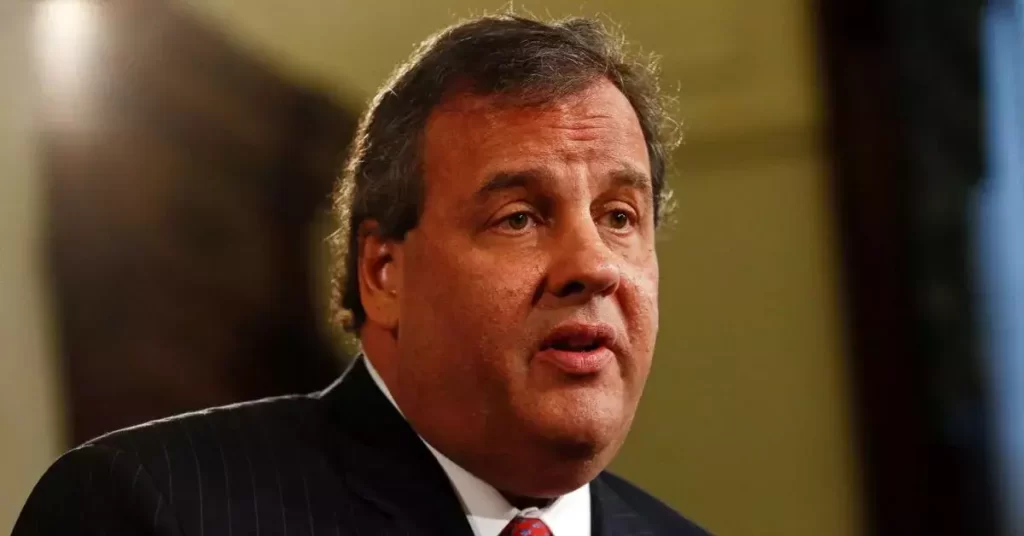Former New Jersey Governor Chris Christie Remains Defiant Against Trump’s Attacks in 2024 GOP Race
Amid the fervent atmosphere of the 2024 Republican presidential field, one voice resounds louder than most: Chris Christie, the former Governor of New Jersey, has emerged as a resolute opponent of former President Donald Trump. In a political climate often characterized by divisive rhetoric and personal attacks, Christie remains undeterred, openly challenging Trump’s tactics and urging his fellow candidates not to underestimate the power of engagement.
At a recent town hall event in Salem, New Hampshire, a curious attendee probed Christie about his potential response to Trump’s trademark “low” blows, questioning whether he would consider adopting a more magnanimous approach. In response, Christie’s succinct and definitive “No” reverberated through the room, punctuated by cheers from the crowd.
Expanding on his stance, Christie invoked the memory of the 2016 election cycle, a time when many political players chose to dismiss Trump’s inflammatory rhetoric in favor of the proverbial “high road.” Christie pointed out that this strategic choice had glaring consequences, leading to Trump’s eventual rise to the presidency. Drawing from this lesson, Christie asserted that a head-on confrontation with Trump’s falsehoods and attacks is not only necessary but vital for any contender hoping to secure a victory.
Christie’s passionate assertion that “When he lies, we need to fight him. Because to ignore him is to assent to his lies” encapsulates the core tenet of his approach. In a political climate where misinformation can spread like wildfire, Christie’s insistence on holding Trump accountable for his statements marks a stark departure from the tactics employed by some in the past.
The twist in Christie’s narrative is hard to ignore. In the 2016 GOP presidential primaries, he stood out as an early and staunch supporter of Donald Trump. Their alliance endured throughout Trump’s presidency, until the tumultuous aftermath of the 2020 election, when Christie distanced himself from the former president’s efforts to contest the results. Reflecting on this journey, Christie openly acknowledged his error in judgment, admitting that his initial endorsement of Trump was misguided.
The shadow of Christie’s past alignment with Trump looms over his present endeavors, particularly among certain voters, such as those in New Hampshire’s Granite State, who have reservations about his credibility. In response to an attendee’s pointed query regarding his past support for Trump, Christie conceded his wavering stance. He confessed that his intentions in 2016 were to mold Trump into a more effective candidate and leader, but the subsequent years had debunked that aspiration.
To potential skeptics, Christie presented a simple yet powerful message: “The reason you should vote for me this time is that I’ve grown wiser over the past eight years.” This admission of self-improvement echoes the sentiment that personal growth and the capacity to learn from past mistakes are virtues that resonate with voters seeking authenticity in their leaders.
Christie’s unwavering stand against Trump’s influence signals a noteworthy shift in his political trajectory. Transitioning from being one of Trump’s most steadfast allies to a vocal critic showcases the evolving dynamics within the Republican Party and the broader political landscape. His determination to confront Trump’s falsehoods rather than ignoring them reflects a growing recognition of the need to engage head-on with misinformation and divisive tactics.
As the 2024 election cycle unfolds, Christie’s stance prompts essential questions about the direction of the GOP and the role that outspoken opposition figures will play in shaping its identity. His transformation from a Trump supporter to a steadfast critic underscores the intricate web of political loyalties and the ongoing recalibrations that define American politics. In a contest where the stakes are high, Christie’s resolute stance serves as a reminder that political survival and relevance hinge on the ability to evolve and adapt.



